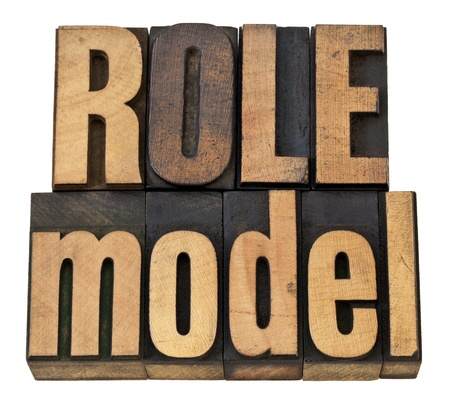The Seven Traits of a Role Model
At its core, all businesses are just people carrying out an idea. It’s never the other way around – there is no idea so big that it doesn’t need people to make it succeed. Investors know this, hence the saying, “Bet on the jockey, not the horse.” A great jockey is a great role model.
Like it or not, everyone looks to the entrepreneur as the jockey of a new business. Typically, this energizes rookie startup founders, but some struggle trying to live up to their own – as well as everyone else’s – expectations. In reality, nobody expects anyone to be superhuman, but it can feel like that.
We certainly wouldn’t expect superhuman behavior from the people looking to us for guidance, nor would we want them to expect flawless behavior from themselves. If not perfect behavior, what characteristics and actions do they look for?
Seven Qualities of Positive Role Models
- Demonstrate confidence and leadership. A good role model is someone who is always positive, calm, and confident in themselves. You don’t want someone who is down or tries to bring you down. Everyone likes a person who is happy with their achievements but continues to strive for bigger and better objectives.
- Don’t be afraid to be unique. Whatever you choose to do with your life, be proud of the person you’ve become, even if that means accepting some ridicule. Role models shouldn’t pretend to be someone they aren’t just to suit others.
- Communicate and interact with everyone. Good communication means listening as well as talking. People are energized by leaders who explain why and where they are going. Great role models know they have to have a consistent message and business plan and repeat it over and over again until everyone understands.
- Show respect and concern for others. You may be driven, successful, and intelligent, but whether you choose to show respect or not speaks volumes about how other people see you. Everyone notices if you are taking people for granted, not showing gratitude, or stepping on others to get ahead.
- Be knowledgeable and well-rounded. Great role models aren’t just “teachers.” They are constant learners, challenge themselves to get out of their comfort zones, and surround themselves with more intelligent people. When team members see that their role model can be many things, they will learn to stretch themselves to be successful.
- Have humility and willingness to admit mistakes. Nobody is perfect. When you make the wrong decision, let those watching and learning from you know that you made a mistake and how you plan to correct it. By apologizing, accepting accountability, and correcting course, you will demonstrate an often overlooked part of being a role model.
- Do good things outside the job. People who do the work and yet find time for good causes outside of work, such as raising money for charity, saving lives, and helping people in need get extra credit. Commitment to good causes implies a solid commitment to the business.
True role models possess the qualities we would like for ourselves and have affected us in a way that makes us want to be better people. They help us to advocate for ourselves and take a leadership position on the issues that we believe in.
We often don’t recognize true role models until we notice our personal growth and progress. That implies that it takes one to know one. Thus, if you are asking the question, that may mean you are well along the road to being that role model already. Don’t stop now.

